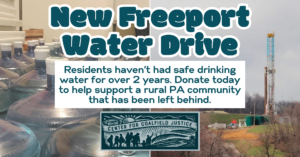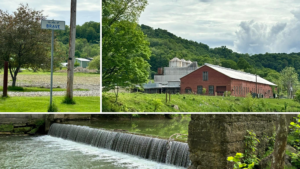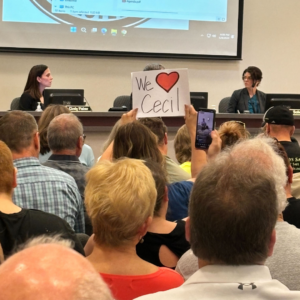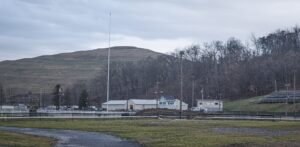Archive: Fracking/Petro
Residents of New Freeport, Pennsylvania have been without safe, drinkable private water since June 2022 following a reported frac-out at a nearby EQT well pad. Since then, residents have been forced to purchase pallets of water bottles or refill jugs at stores far from their homes in order to drink or cook. The Department of Environmental Protection […]
Read MoreThe history of the natural gas industry in southwestern Pennsylvania runs as deep as the Marcellus Shale layer. When we look at the region, and understand how intimately woven the ties of industry and cultural identity are, and how they have shaped not only the region but the people within it, it is vital we […]
Read MoreTonight, Cecil Township convened a public hearing at 6:00 PM to deliberate amendments to its Oil and Gas Ordinance. Community advocates and residents are rallying for increased setbacks beyond the proposed 1,000 feet, emphasizing the urgent need to enhance safety measures.
Read MorePer the Air Pollution Control Act, operations that emit major sources of air pollution are required to obtain, and operate in compliance with an operating permit. In Pennsylvania, these permits are known as Title V Permits. Each permit lays out what kind of pollution is being emitted, how much, and what steps the operator is taking to reduce air pollution. When an operator applies for a new or renewed application, the DEP allows for a 30-day public comment period.
Read MoreTed Auch, FracTracker Alliance, 2015. There is a long history of regulating “road dumping” which, essentially, is the disposal of oil and gas wastewater onto public roads. Due to some legislative loopholes, the by-product from conventional and unconventional drilling was legally allowed to be released on public roads, despite the number and concentration of harmful […]
Read MoreThe Health Effects Institute is a nonprofit corporation that provides impartial and relevant science on the health effects of air pollution. The Philly Conference covered several topics that were of interest to our communities in both Washington and Greene Counties. Tonya’s overall takeaway from the Health Effects Institute Conference in April 2024 is the feeling […]
Read More




